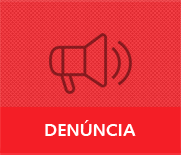Compartilhar:
Under More Doctors program, probationary onboarding period for foreign doctors kicks off in Brazil
Criado em 26/08/13 14h14
e atualizado em 26/08/13 15h15
Por Aline Leal Valcarenghi
Edição:s
Fonte:Agência Brasil
Brasília – Doctors holding foreign diplomas who have accepted job positions in needy, underserved areas of Brazil, such as city slums and inner, remote towns under the More Doctors Program are starting a probationary onboarding period on Monday (August 26).
The 644 participants in the first phase of the program arrived on Friday and Saturday (August 23-24) in eight Brazilian state capitals – Porto Alegre, São Paulo, Rio de Janeiro, Belo Horizonte, Brasília, Salvador, Recife, and Fortaleza – where they will attend public health and Portuguese language lessons taught at public universities.
The More Doctors Program has met with controversy among medical associations throughout the country over its policy to import doctors. One of the strongest objections is that applicant foreign practitioners will not be required to take the Foreign Diploma Revalidation Exam (“Revalida”), which is mandatory for all doctors holding foreign diplomas to work in Brazil – and has high failure rates. As the government waives this requirement, medical associations believe it is waiving any guarantees that the population is under the care of qualified professionals. Over the past few days, doctors across the country took to the streets to stage new protests against the program.
Lígia Bahia, a Public Health PhD and former member of the National Health Council, points out that other international experiences show that medical errors are more frequent in procedures conducted by foreign doctors. “Waiving skills exams can work out as an emergency, temporary fix. For a population that has to struggle through such terrible plight to get the care they need, the prospect of having easier, prompter access to healthcare is certainly positive. However, without some kind of certification, the educational background of the [foreign] doctors who apply for these positions can hardly overcome some degree of suspicion,” she said.
However, the Minister of Health, Alexandre Padilha, argues that the three-week onboarding period, which will take place at public universities and includes Portuguese language lessons and public health classes focusing on the framework and operation of the Unified Public Healthcare System (“SUS”), will also provide an opportunity for universities to evaluate doctors who completed their education abroad and – he assures – “are subject to receiving negative assessments”.
Another point of concern is the terms under which the foreign doctors will be hired, which are considered by the medical associations as precarious. A monthly grant of US$4,190 will be provided for each doctor, with no formal job contract. “The government is going to provide a study grant, but the doctors are actually coming to work, not to study,” said the president of the National Medical Federation, Geraldo Ferreira.
The Minister of Health said the stipend is a “qualification grant”, a form of compensation for the doctors to complete specialization in basic care during the three years of the program. Furthermore, social security contributions will be an eligibility requirement for paid leaves and other benefits.
All 1,618 practitioners that applied individually for the first phase of the program will work at 579 public healthcare units in small rural towns and big city slums. Out of this total, 1,096 doctors have Brazilian diplomas and will start work on September 2. Participants holding diplomas from overseas universities will start work on September 16.
Editors: Lana Cristina / Nira Foster
Translator: Mayra Borges / Fabrício Ferreira
Deixe seu comentário





